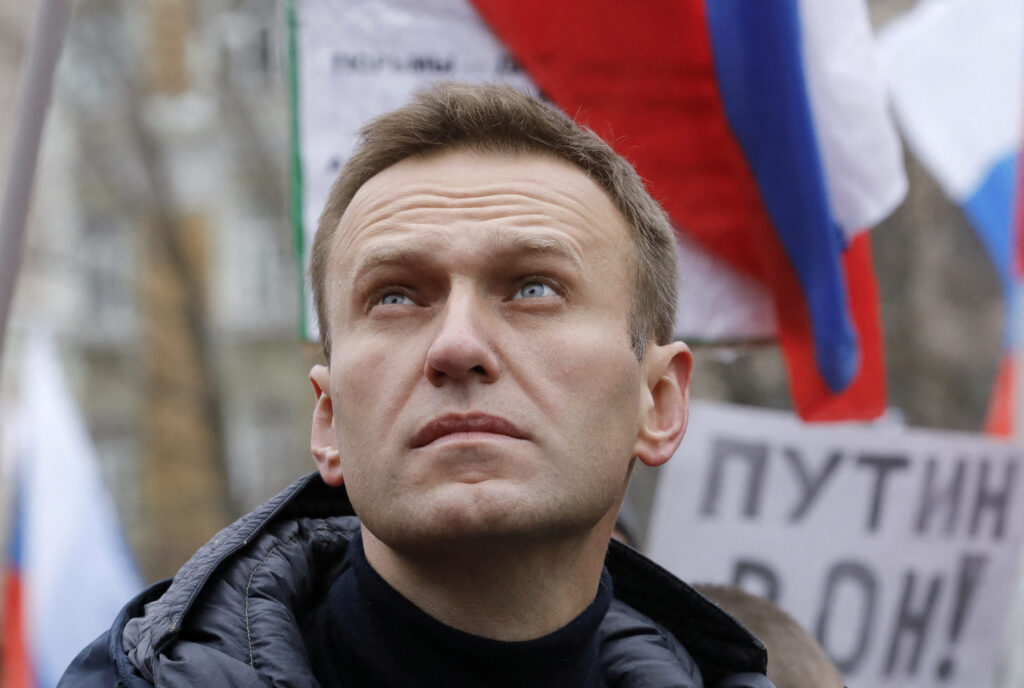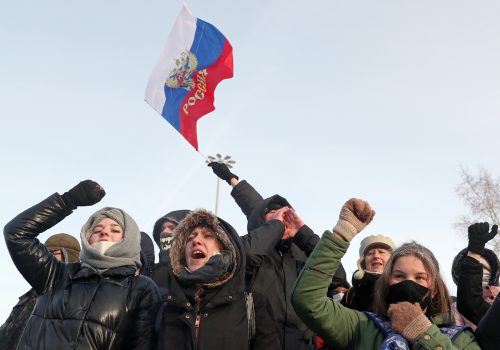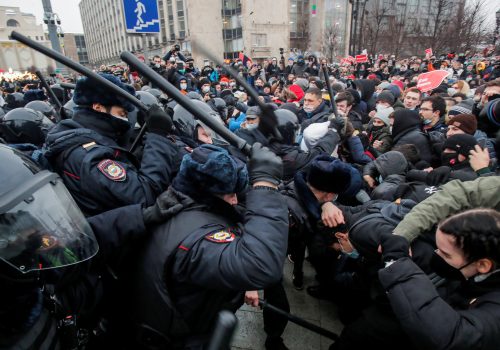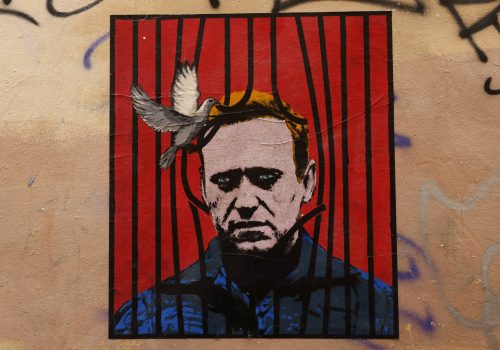Death was probably the only way Alexei Navalny would ever escape his imprisonment on trumped-up charges in Russia: either his own or Russian President Vladimir Putin’s. With Russian media reports that Navalny dropped dead after taking a walk in the Arctic penal colony where he was last held, we have the answer.
The face of genuine anti-Putin opposition in Russia, the former lawyer, blogger, anticorruption investigator, presidential candidate, and prisoner offered, for many, the best democratic alternative to Putinism. While most Russians viewed him with apathy, Navalny built a national movement based on exposing the rampant corruption and gangsterism of Putin’s system. Even if he never had any hope of winning the rigged Russian elections or sparking some sudden popular uprising to overthrow Russia’s leadership, Putin still saw Navalny and his team as a mortal threat.
In the lead-up to Russia’s February 2022 full-scale invasion of Ukraine, Putin set about eviscerating Russian civil society and free media, including Navalny’s Anti-Corruption Foundation (FBK). This crackdown, in effect, disbanded or neutralized any organizations or popular figures that the Russian people could rally around in opposition to the war in Ukraine.
Members of Congress . . . are at this moment rightly being reminded of the urgency with which Russia must be stopped.
After recovering in Germany from an assassination attempt, Navalny returned to Russia in 2021 to face certain imprisonment and a likely death sentence for opposing Putin. Shortly thereafter, his FBK was declared an “extremist” organization and forcibly liquidated. Its offices across the country were shuttered, and those not imprisoned were shunted out of the country.
During Russia’s parliamentary elections in fall 2021, the Kremlin coerced Google and Apple into removing from their online stores the app associated with FBK’s “Smart Voting” program, which encouraged voters to coalesce around individual candidates to deny Putin’s United Russia party seats in the Duma—or at least force the authorities to be even more brazen in their stealing of the election.
Navalny and his team had a talent for breaking through the dry bleakness of Putinism. His investigations into Russia’s kleptocracy were filled with Navalny’s sense of authenticity and humor. For example, a 2016 exposé about former Russian President Dmitry Medvedev’s special building just for ducks at one of his lavish houses became a viral meme and turned rubber ducks into a symbol of protest in Russia. Navalny’s own blue underwear, on which the deadly nerve agent Novichok was smeared by his would-be assassins, became another such resistance meme.
More than most, Navalny was skilled at finding the issues and language that could activate Russians in a system designed to convince individuals that acquiescence is preferable to resistance. In his early years in opposition politics, this included the employment of racist and anti-immigrant tropes, as well as association with particularly unsavory groups.
This history—along with Navalny’s opposition to the war in Ukraine less because of its criminal and genocidal nature and more because it was disastrous for Russia—means that Navalny wasn’t viewed with particular favor among Putin’s other victims in Ukraine and elsewhere.
Navalny’s murder, nevertheless, is an important reminder of two key facts.
First, the violence inherent to Putin’s blood-soaked reign will continue unabated until he and his thugs—as well as the relative indifference in Russian society that allows it to happen—are stopped. Most immediately, that can and must happen in Ukraine. Members of Congress, in their sixth month of debating whether to approve aid to Ukraine, are at this moment rightly being reminded of the urgency with which Russia must be stopped.
Second, Navalny’s murder is like dousing the last flame of hope inside Russia of a positive vision for the country. Stabilizing Putin’s hold on power in the immediate run-up to his invasion of Ukraine meant destroying many of the brightest parts of the freer Russia that emerged from the Soviet Union. Free media is once again censored and civil society organizations like Memorial—Russia’s oldest nongovernmental organization, which was dedicated to the memory of Soviet repressions and the quest to keep them from being repeated—liquidated and banned.
The system crafted by Putin and his allies over the last quarter century relies on manufacturing a sense of inevitability and invincibility. Putin must be a larger-than-life figure and his state must be all-powerful. But the fact that this system can feel so threatened not only by a man such as Navalny, but even by someone on the street holding a blank sign in protest, shows that there is nothing inevitable or invincible about Putinism. The coming “re-election” of Putin next month is intended as a ritual of reaffirming his power, but Navalny’s murder will stand as a stark reminder of the extraordinary lengths to which Putin must go to maintain that power.
With Navalny killed, Putin has left no real alternatives to his rule in Russia, and the chance of change is closed off just a bit more. The best and perhaps only real hope for creating a new opening for change in Russia is by unambiguously defeating Putin’s greatest act of violence—Russia’s war to annihilate Ukraine.
Doug Klain is a nonresident fellow at the Atlantic Council’s Eurasia Center and a policy analyst at Razom for Ukraine, a nonprofit humanitarian aid and advocacy organization.
Further reading
Thu, Jan 28, 2021
Navalny’s anti-Putin message resonates in Russia’s regions
UkraineAlert By Maria Snegovaya
Alexei Navalny’s anti-Putin message clearly resonates with residents of Russian regions far away from the country’s traditional centers of political activity in Moscow and St. Petersburg.
Tue, Jan 26, 2021
Russia’s Navalny protests provoke mixed emotions in Ukraine
UkraineAlert By Peter Dickinson
Ukraine has good reasons to support the current Russian protests against Kremlin corruption, but many Ukrainians remain suspicious of protest leader Alexei Navalny's troubling nationalist background.
Thu, Jan 28, 2021
Navalny vs Putin: what next?
UkraineAlert By Peter Dickinson
January 23 saw some of the biggest anti-regime protests across Russia in recent years. What can we expect from the escalating confrontation between Vladimir Putin and opposition leader Alexei Navalny?
Image: Russian opposition leader Alexei Navalny attends a rally in memory of politician Boris Nemtsov, who was assassinated in 2015, in Moscow, Russia February 24, 2019. REUTERS/Tatyana Makeyeva



